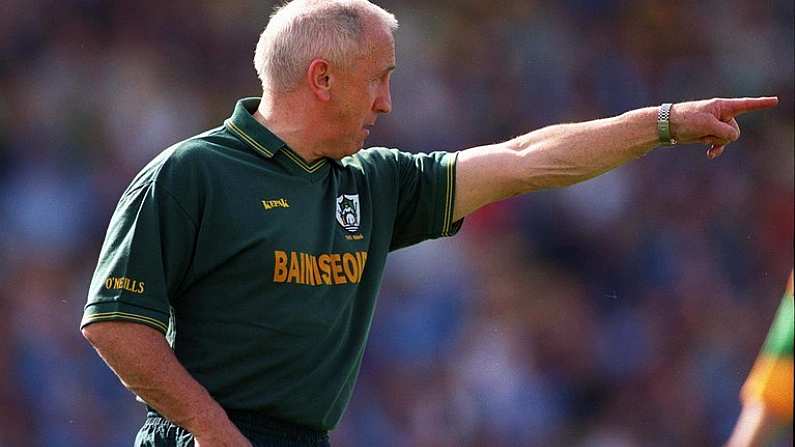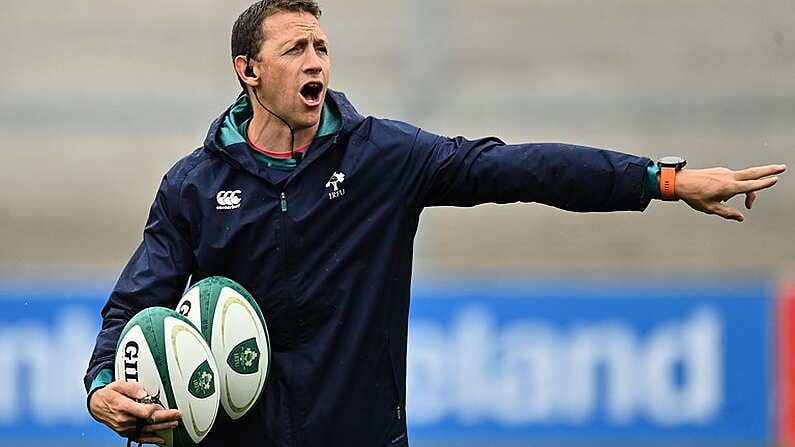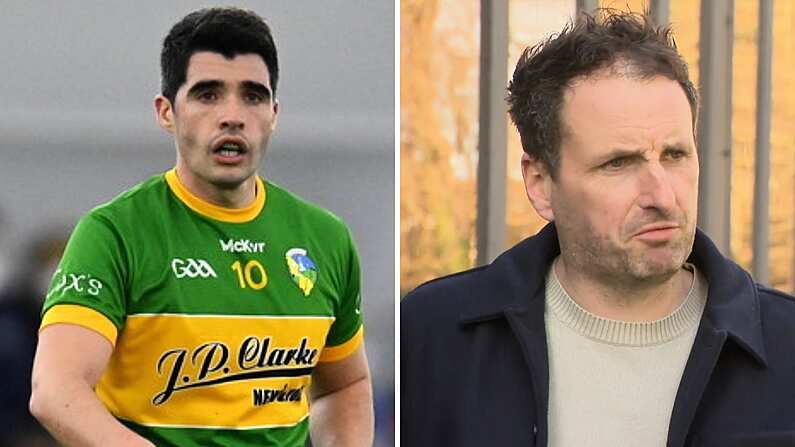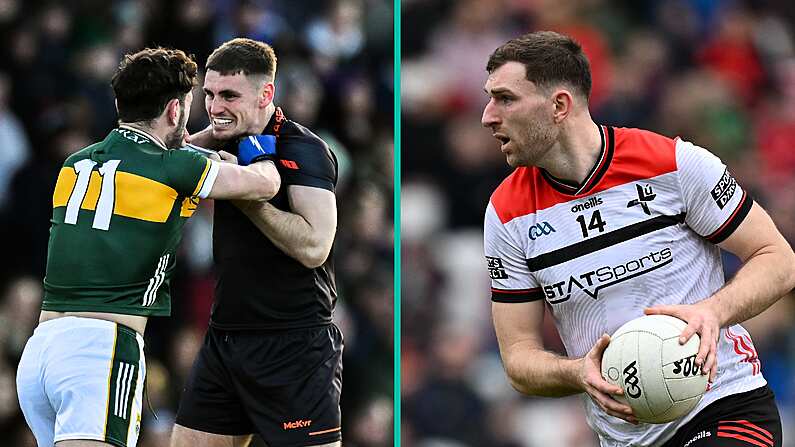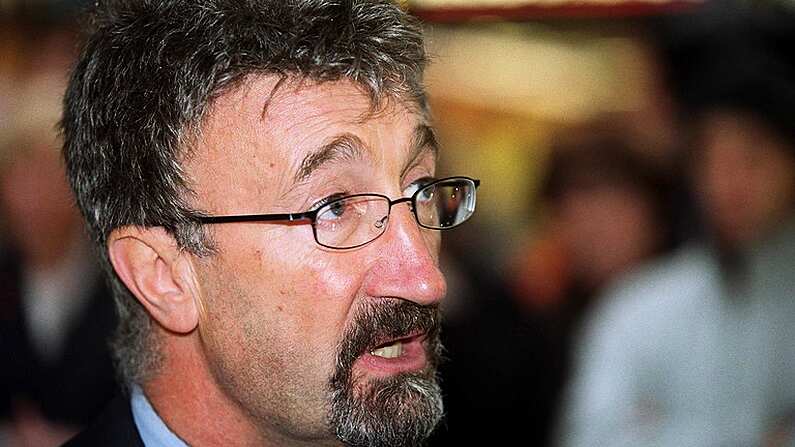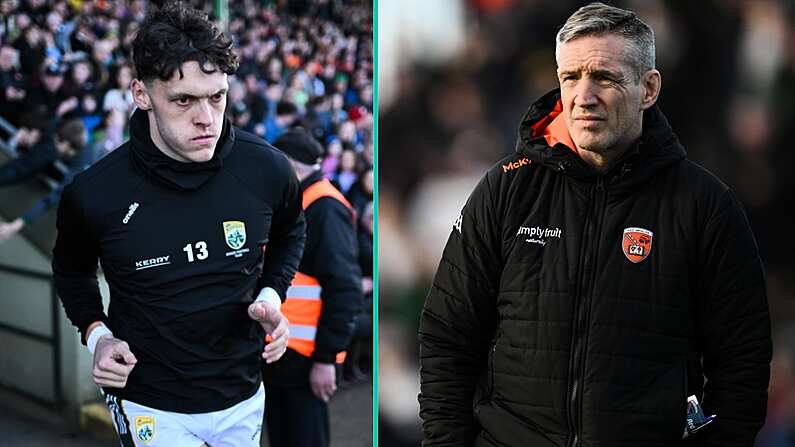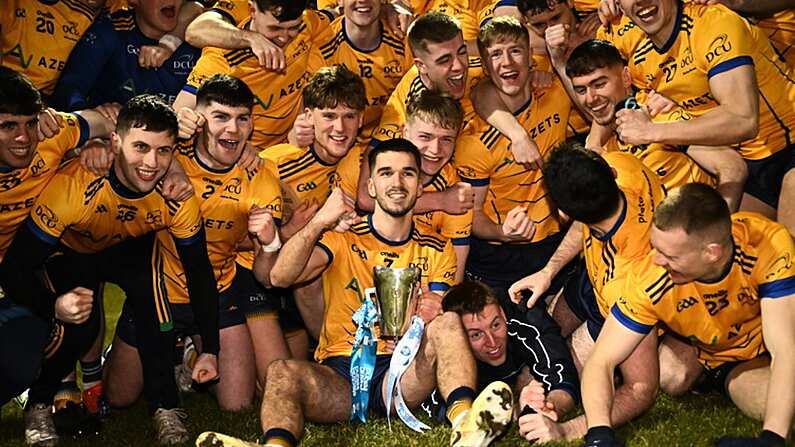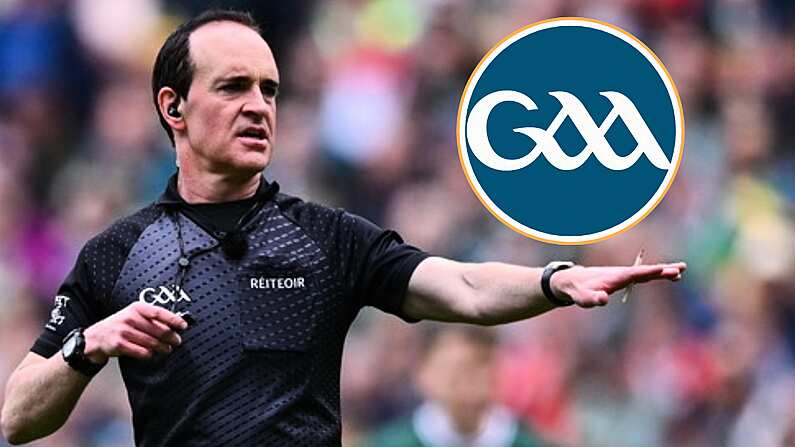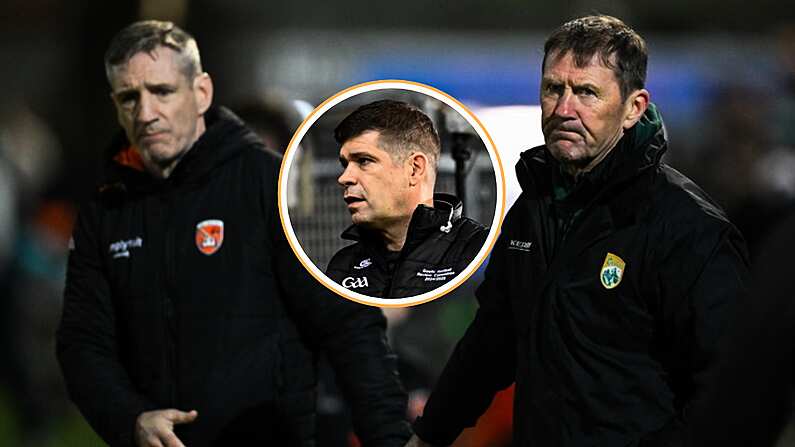Pat Gilroy is to become Dublin's next senior hurling manager.
Having led the county to All-Ireland footballing success in 2011, the St. Vincent's man will embrace a crossover that is rarely attempted - and certainly not by one who has hit such heights in his own code.
Charged with revitalising the lagging fortunes of the county's hurlers, practical inexperience will, ideally, come second to Gilroy's familiarity with success.
How easily this trade off can be carried off remains to be seen. Unlike his fellow club man Diarmuid Connolly for instance, Gilroy has virtually no hurling experience.
As Malachy Clerkin reported in today's Irish Times, Gilroy has never been one of St. Vincent's 'chunk of dual players and coaches. He will be bringing no hurling experience to speak of into the role with him.'
While Gilroy will unquestionably be aware of these difficulties and how he plans to overcome them, he will embark upon a path that has been tread with outstanding success by one manager in particular.
********************
Not much was expected of Seán Boylan or Meath's footballers when the pair reluctantly convened in 1982.
The Royals may have recorded All-Ireland wins in the 1940s, 50s and 60s, yet, with not so much as a Leinster championship to their name since 1970, the sporadic appearance of Sam Maguire didn't seem like something Meath could plan for - let alone execute.
Where household names would emerge with time, in the early 1980s, Meath were a team afraid of the county's illustrious shadow.
Boylan on the other hand barely cast a shadow at all - the county had come to him as something of a last resort.
Discussing the nature of his appointment on Eamon Dunphy's The Stand podcast, it had been his intention to fill the role 'for a couple of months' until they found somebody appropriate.
Considering his formative years within the GAA up to this point, Meath's footballers may well have had reason to question his capabilities to do the job much longer then that anyway:
I played [hurling] for 22 years with Meath. From the time I was 17 I was on the Meath senior hurling team.
I went to school in Belvedere ... and that's where my love of hurling developed, that's my favourite game by a thousand miles.
A rare practitioner of Gaelic football as a player or manager before his appointment in 1982, Boylan nonetheless had had the prospect of playing football for his county. Yet, as he revealed to Dunphy,
I got picked four times, and four times Meath's hurlers were playing and I chose to play hurling.
A relative naif, Boylan's inexperience would ultimately find compensation in something altogether less tangible.
Meath's footballers were struggling with a set of limitations that had far less to do with technique and ability, rooted alternatively in trickier inhibitions.
One player acutely aware of Meath's difficulties in this department was Liam Hayes; his Out of our Skins often providing a step-by-step assessment of Boylan's efforts at stripping his players of such doubt:
Two days before a Leinster final (1984), on a dull, showery evening, [Boylan] spotted Jack Fitzgerald, one of the grandfather figures of Meath football, standing outside the wire.
Jack was getting over a recent illness [and] the session was stopped once he had been noticed. The players were lined up, and introduced to Jack one by one. It was a nice gesture. It was also respect getting in the way of a training session ... a crazy, forced respect, but was Sean teaching the team to respect itself too? I think so!
We didn't realise ... the methodical way in which Boylan was scraping away at the years of inhibition and acceptance which had built up around the Meath team.
They wouldn't win the Leinster final in 1984.
Two years later though, Meath would claim their first title in 16 years; a two-point win over the previous year's All-Ireland beaten finalists Dublin.
It would be the first of 5 provincial titles in 6 years; All-Ireland success following in 1987 and '88.
Something had happened in Meath.
********************
How had this 'short, muscular, iron figure of a man' from Hayes' memory, with his scarce measure of relevant experience, conjured such success from this aimless bunch?
Through 'a few hints - a few diffused, faint clues' one can begin to imagine.
Listen to him speak even now and the passion remains - for helping others if not necessarily himself.
Priding himself on telling this doubtful team that "I'll never ask you do something which I can't do myself", Boylan approached Gaelic football with few preconceived notions.
Although Hayes suggested that Boylan 'had never been a very good footballer, [but] played the game well' when he could pull himself away from hurling, his inauspicious arrival in '82 coincided with a general reassessment of what was and was not possible within inter-county football.
Under a similarly young and unconventional Eugene McGee, Offaly had halted Kerry's drive for five All-Ireland's in a row the summer before Boylan's arrival.
While no great changing of the guard would take shape in terms of which counties would win major honours most of the time, "change" was no longer so readily dismissed.
Beyond the surprising nature of his appointment, Boylan's early encounters with the Meath panel were a testament to this development:
Sean's training methods will never be found in any coaching manual. Almost everything is instinctive, highly imaginative, and a little crazy.
From instructing his players to row the Royal Canal, to augmenting their diets and pre-match preparation, Hayes recalls Boylan's inherent ability to 'produce a few smiles and release some tension' within the panel, while nonetheless proving a vital inspiration:
Boylan was prepared to get down on his knees in the case of Meath football, and it was becoming increasingly difficult to avoid joining him.
With their breakthrough Leinster success in '86, the proverbial monkey was off Meath's back. When the first All-Ireland success of Boylan's era arrived a year later, the future was theirs.
********************
Speaking on The Sunday Game after Dublin's fifth All-Ireland success in seven years, Ciarán Whelan suggested just how important the initial win in 2011 had been in enabling Dublin to kick-on.
Throughout Whelan's extended spell on the Dublin panel, great players like himself often appeared distinct parts of a disunited whole - Pat Gilroy would change this attitude (albeit too late for Whelan).
Boylan's Meath developed along the lines of Whelan's theory - get over the line once and anything can happen.
Although Hayes revealed that 'the standard joke in the dressing-room was that we would make a manager out of Boylan' if he hung around, there is a definite sense of dual-responsibility in a situation such as this.
For every Colm O'Rourke, Trevor Giles or Graham Geraghty that would play such a pivotal role in Meath's success under Boylan, Hayes' recollection of events certainly suggests the presence of a collective growth and effort that cannot be overlooked.
During his discussion with Dunphy, Boylan highlighted one such moment.
With their backs firmly to the wall after a disastrous defeat to Laois in the 1985 Leinster championship, certain sections of Meath vocalised their consternation with Boylan; 'What do you expect, he's only a hurler.'
Although walking away would seem to be counter-intuitive to the man's character, Boylan was not yet the esteemed figure he has since become. In short, he was tentative in his certain aspects of the role - only natural perhaps given his background in hurling - and it was the players who took decisive action:
I came in home one night and Colm O'Rourke, Joe Cassells, Mick and Padraig Lyons, Liam Hayes and Gerry [McEntee] were sitting in my kitchen with my mother. And they were eating brown bread and jam and drinking tea, and you wouldn't see them with my mother smoking.
I didn't know the lads were coming up and after a couple of minutes my mother said, "come on, up the house now you lads and sort this out."
We talked about where we had come from and where we thought we might go to, and Padraig Lyons passed just one remark [to me], and he said, "listen, you do me a favour, will you put your shyness in your arse pocket."
It had the desired effect.
Providing Boylan with all the backing he needed, Meath would win the first of Boylan's 8 Leinster titles the following summer.
********************
Guiding Meath into the new millennium, Seán Boylan's eventual departure came in 2005 - 23 years after he took the job on for a 'couple of months'.
With four All-Ireland titles, eight Leinster titles and three National Leagues won, it was the unquestionable 'golden era' of Meath football.
Overseeing the development of a number of All-Star footballers and a fair few Footballers of the Year to boot, the temptation of leaving the job had come after a 10 point defeat to Dublin in the 1995 Leinster final.
Yet, when this 'hurler' considered walking away from football, it was brought to his intention that Meath's promising 'young lads think they'll win an All-Ireland with you' - one year later they had done just that.
If Dublin need any assurances that the transition can be made by Gilroy, they need look no further than Boylan and his experience with Meath.
Although few will expect Dublin to deliver Liam MacCarthy to the capital, the fact remains that as recently as 2013 it was a tangible reality.
With three years to play with, Gilroy has received an initial level of backing that Boylan was scarcely afforded. What he can realistically hope to achieve is as yet unclear; retrieving some of Dublin's lost talent is of primary importance.
Whatever comes of this novel pairing, Gilroy ought to consider Boylan's example.
The Meath man who was besotted with hurling couldn't deny that the years he spent with Meath football signal 'the time of my life'.

